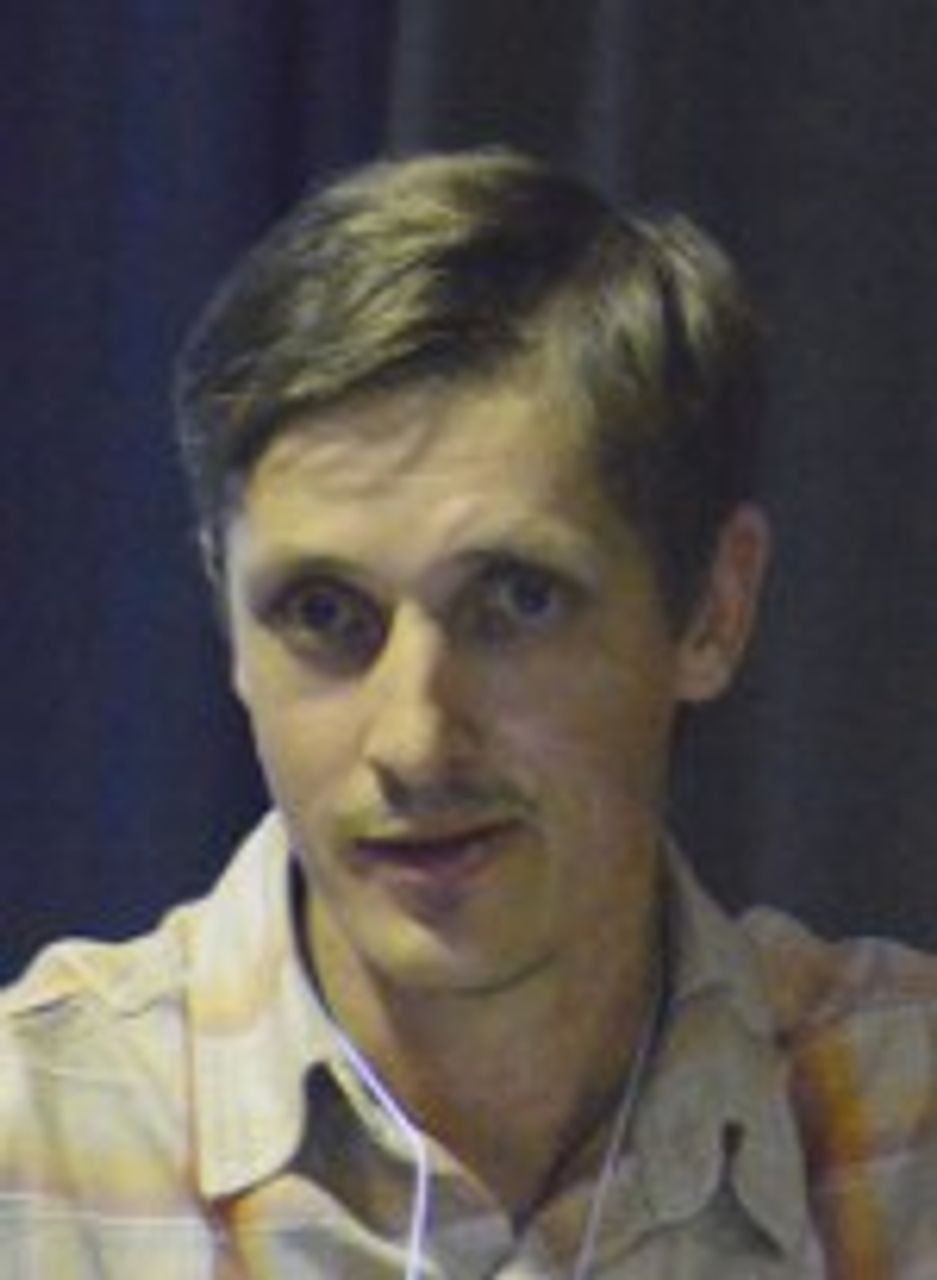Socialist Equality Party (SEP) conferences on “The Failure of Capitalism and the Fight for Socialism Today” were held in Sydney and Melbourne over the past two weekends. They discussed the new stage in the breakdown of global capitalism, and the fight for a socialist and internationalist perspective for the working class to answer the intensifying assault on jobs, living standards and basic democratic rights.
A feature of the conferences was the participation of young workers and students, some attending their first socialist conference, and thoughtful contributions to the discussion by relatively new members of the SEP and its student movement, the International Students for Social Equality (ISSE). Today, we publish interviews with some of the Sydney delegates, and tomorrow we will publish interviews from Melbourne.
Ben, a 25-year-old American teacher who travelled from South Korea to attend the conference, said he had decided to make the trip because the world needed “a new direction, a working class direction.” He explained: “We have spent the last 200 years with capitalism and it has sent people into a poor situation, where they lack food, housing, culture and the opportunity to find a decent job.”
Ben said he was working in Korea because he had been unable to find work in the US. “I majored in history, but graduated from college to end up working at a Wal-Mart, a job I had at high school... I talk to friends back home who have had to move cities, just to find work. Others are still living with their parents because they can’t afford to live on their own.”
This experience had shaped his thinking, Ben said. “When people travel to different countries to find work they are met with a nationalist hostility worked up by governments and people in power in order to split the working class. In South Korea there are two different kinds of workers—Korean and immigrant.”
Ben explained that the World Socialist Web Site had been decisive in helping him to “put together more of a world view.” He also welcomed the “enlightening” and democratic atmosphere at the SEP conference, where everyone’s ideas could be heard.
Commenting on an issue raised in the discussion, Ben said the notion of appealing to the bourgeoisie to see reason and embrace socialism was “just not a viable option, or it would have happened a long time ago.” He added: “We have to fight for workers’ rights and for workers’ governments around the world. It is good to see that perspective so alive and well so many years after Leon Trotsky’s assassination.”
 Alexander
AlexanderAlexander, a student from Canberra, said that he came to the conference because “I’d like to learn more about Trotskyism and socialism, to find out if it’s a solution to a lot of the problems that we have… I’m concerned about militarism, the exploitation of the working class, inequality and the difference between the classes.”
“I thought the speakers were very interesting, and I liked how anyone was allowed to contribute and pose questions. I agree that a lot of young people have nowhere to turn and are persuaded not to enter into politics or to think about it.”
Alexander outlined some of the conditions facing students and young workers. “I’ve started looking for work, and it’s been very difficult. I submitted my resume to six recruitment agencies and only one of them contacted me back—and I didn’t get a job. Even people with experience in the workforce are finding it difficult. I have friends who are highly-skilled and have years of work experience in hospitality, and they can’t even find a casual job.”
Susannah, a Newcastle University student, said: “I’ve been very impressed with the range of expert speakers, particularly the speaker from America, Jerry White. It was clear that he had a lot of experience and I found valuable the statistics he provided. All the speakers are very informed by history and their experience in politics and I feel that this is essential in addressing all the current issues in the world.”
Asked what she thought were the main points of the discussion, she commented: “I think the conference put a lot of emphasis on the fact that the working class needs to be informed of its potential. The working class gains its power through knowledge and the party must work through oppression in a huge range of fields, for instance education.”
Susannah said it was important for the SEP to communicate with young people. “Many youth think about politics when election time comes round, but between elections become disenchanted by what they see and turn to drugs and alcohol. I have encountered many youth who have mental health problems and harm themselves and I believe this is because they have nothing that they can feel a part of. Thus the party must continue to direct its attention to the youth because I feel that the more informed you are, the less alienated you feel from the world.”
 Julian
JulianJulian, a worker from Brisbane, commented: “The conference gave workers a perspective on what they need to do. Conferences like this give workers an outlet where they can organise themselves against the social counter-revolution; to build a party where we can actually change what’s happening in the world.”
Julian said Australia was no exception to the global economic breakdown and cited the example of the massive cuts in social spending proposed by the Obama administration in the United States. “The Obama administration purposefully used the US debt crisis for budget cuts. As America makes trillions of dollars in cuts, Australia has to follow suit to be internationally competitive.”
Julian emphasised that the Australian Labor Party had been built on nationalism. “As one speaker said, any party based on nationalism has failed the working class. The Greens are no different. They all represent the interests of big business. They use nationalism to divide the working class, but as a class we are international.” He added: “The WSWS is fantastic. Nothing comes close to it. The WSWS embodies socialism.”
Abraham, 21, from Singapore, is studying at Sydney’s Macquarie University. He came to the conference after seeing it advertised on posters on campus. “Almost every day they were taken down, and then someone would put them back, so I was like, alright, they must really have a message that they really believe—I’ll go check it out.” He went to an ISSE meeting on campus and found out more about the conference.
“The conference has been great and very informative,” Abraham said. “The speakers gave a very good analysis of what’s unfolding in the world, how the ruling elite is oppressing the workers, and the solution for us to bring about equality and fairness for the workers.”
On the British riots, Abraham said: “I think the rioters have been oppressed for very long—so this tension [has] been building up, and this riot is just an outlet for them to show their unhappiness. If things don’t change around the world where similar economic disparities can be found, similar riots will occur.”
Jeffrey, a recently graduated lawyer and part-time university lecturer, said he came to the conference because “I thought it would be a good opportunity to develop my interest in the ideas of the Socialist Equality Party. Secondly, my legal education, and my legal background has demonstrated to me that the current legal system in Australia is really an application of capitalist ideology. It is a system fraught with many problems and great injustices. There has been a steady decline of democratic and legal rights in Australia.
“The conference gave a very good outline about the failures of capitalism. The examples were given of the bailing out of the banks, and the riots in London, which reveals a bigger socio-economic problem, not just in Britain but around the world.
“There needs to be an alternative system put in place. Socialism is not only viable, but
the only alternative to save the planet from destruction. Most importantly, there needs to be a wide-scale education of young persons and the working class to rise up to take on the bourgeoisie. We have to effectively take over the economy and translate it into one of state ownership where the interests of people are pursued, rather than self-interest.”
